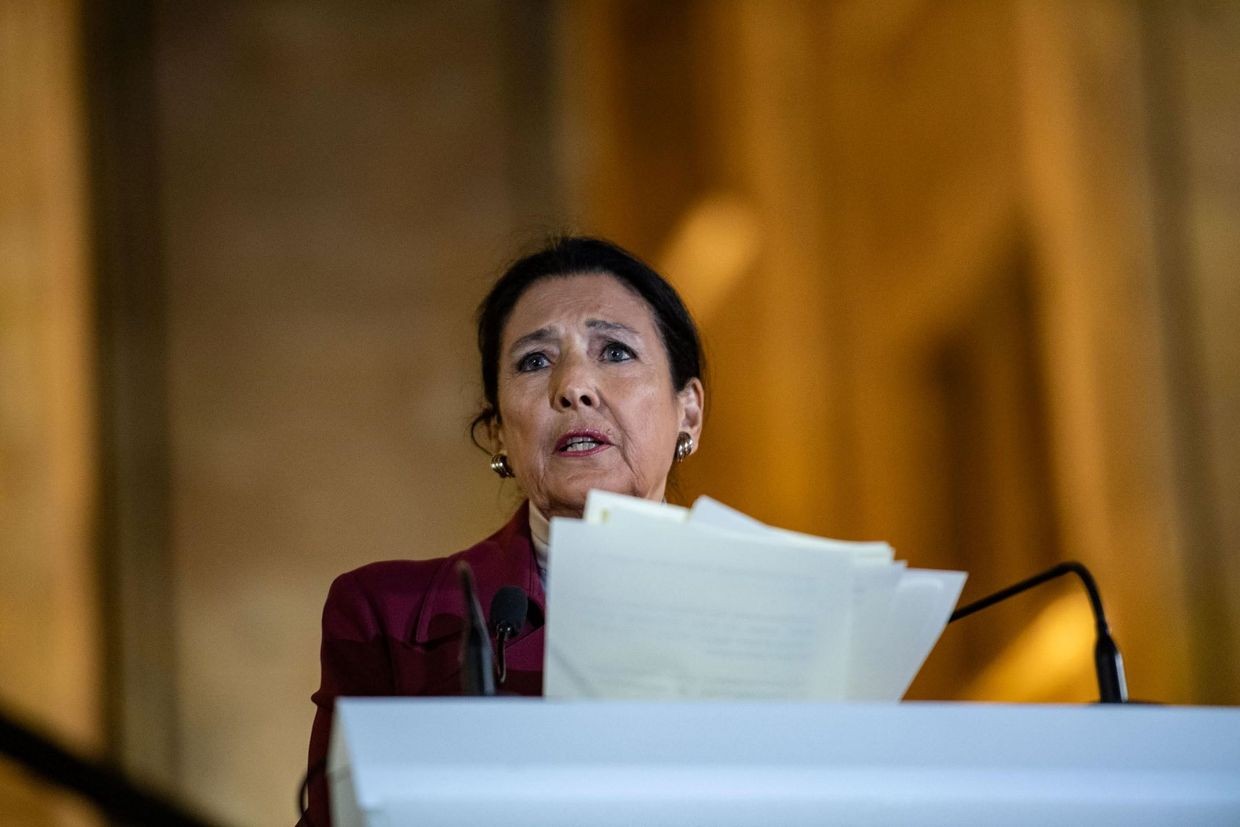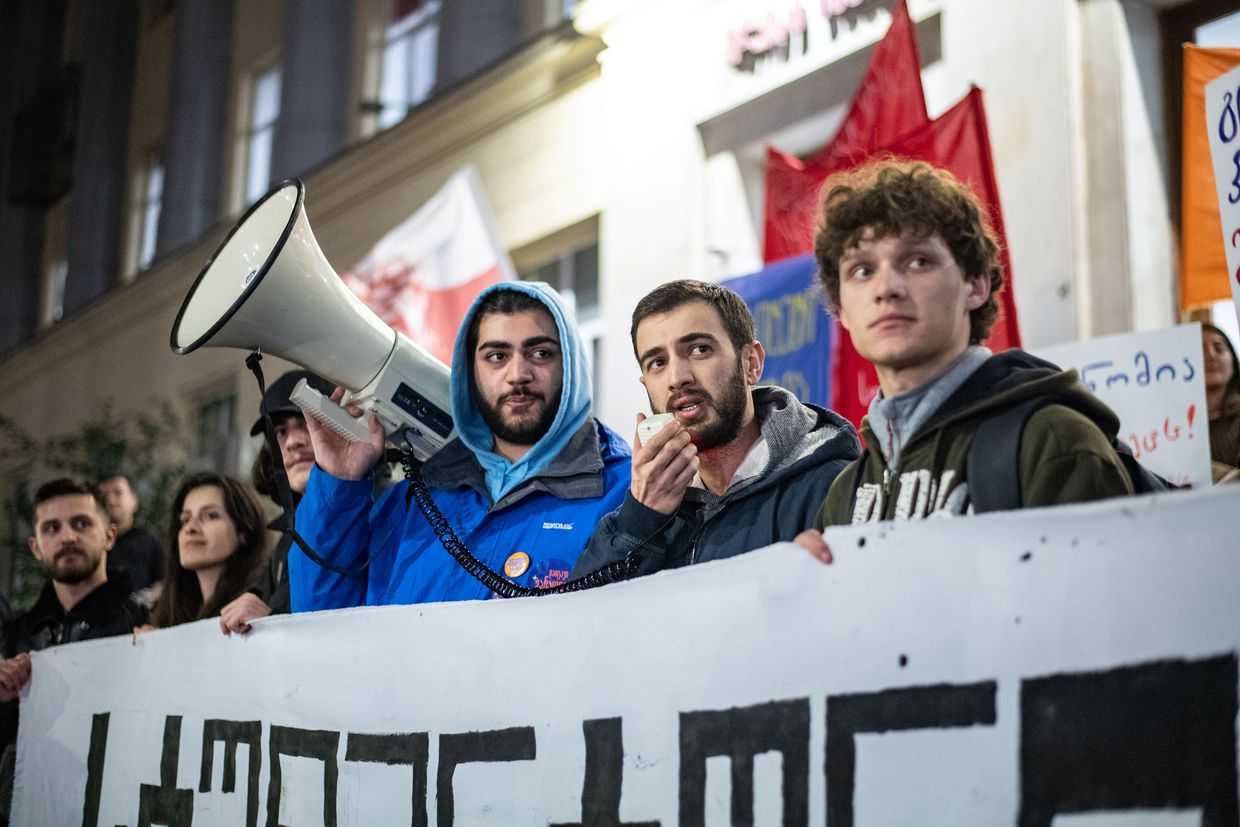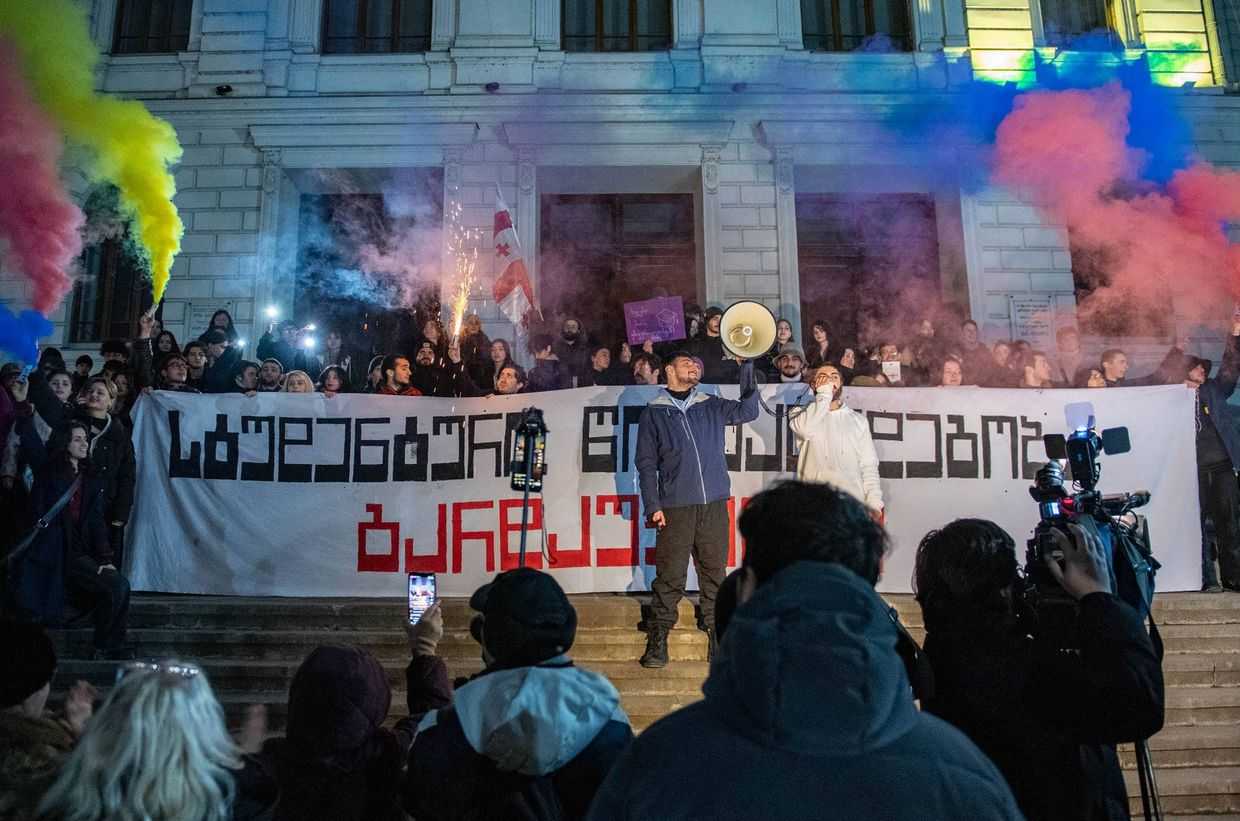
Russian propagandists and pranksters Vovan and Lexus have aired a programme in which they spoke to Georgia’s fifth president, Salome Zourabichvili, and the country’s former ombudsman, Ucha Nanuashvili, about the ongoing protests in Georgia. Throughout the conversations, held separately, Vovan and Lexus impersonated Russian opposition figure and chess grandmaster Garry Kasparov.
On Wednesday, on the Russian state-run TV channel Pervy Kanal, pranksters Vovan and Lexus — Vladimir Kuznetsov and Aleksei Stolyarov respectively — shared the videos of their conversations with Zourabichvili and Nanuashvili.
In addition, they shared links to both interviews in English on their Telegram channel, claiming that ‘Zourabichvili complains that the flow of dollars has dried up due to the USAID closure and the Georgian foreign agent law.’
‘Therefore, local opposition media, as well as NGOs, are in a “critical state”. Having learned that Garry [Kasparov] is allegedly ready to send donations to Georgia and look for sponsors, Zourabichvili promised to prepare a list of friendly NGOs that “should be supported” financially’, the post read.
Kuznetsov and Stolyarov have pranked many other politicians and public figures from Russia and around the world, typically by impersonating others. The videos are then posted online, usually for an intended humorous effect.
In the nearly nine-minute edited video, one of the pranksters and Zourabichvili discussed the ongoing protests in Tbilisi, US foreign policy, the funding of media and NGOs, and the situation in Abkhazia.
While impersonating Kasparov, they offered Zourabichvili help in financing Georgian organisations. In response, Zourabichvili said that the media needs support, especially regional outlets, as well as trade unions and NGOs that are engaged in social issues.
‘[Smaller NGOs] had [only a] little money that was basically coming from USAID or some European funds, and the Europeans are being quite slow. They have been saying that they would transfer money from governmental programmes that were suspended as a form of sanctions and divert it to civil society but that hasn’t happened until now. So this is a critical moment’, she said.
One of the pranksters also told Zourabichvili that he hoped to see a Ukrainian Maidan-type scenario implemented in Georgia.
‘[Unlike Ukraine] this is a very small country [...] that doesn’t have many human resources to give for that type of scenario’, Zourabichvili responded.
Zourabichvili has not yet made any comment regarding the videos.
The second video — in which Kuznetsov or Stolyarov spoke with Nanuashvili, who is currently the head of the Democracy Research Institute, while also impersonating Kasparov — had almost identical questions. The video was almost 15 minutes long and was also edited.
During the show on Pervy Kanal, Kuznetsov and Stolyarov stated that Nanuashvili had sent them several projects that needed funding.
In the edited video, Nanuashvili noted that funding from abroad in Georgia is complicated due to the controversial foreign agents law. He also stated that ‘like the Maidan in Ukraine, we also have unofficial units, there are civilians in masks’.
Speaking with journalists on Thursday, Nanuashvili said that ‘of course, this story, which was broadcast in Moscow on [Vladimir] Putin’s main channel, is falsified and edited’.
‘The original is about something completely different, one might even say the complete opposite’, he said.
‘It is about the participation of informal, armed, bandit groups by the so-called Titushki [a slang term of Ukrainian origin used to describe plainclothes security forces used to attack government critics] in the rallies in November–December of last year, in the dispersal of citizens, in the torture and ill-treatment of people, and this lawlessness continued for days’.
‘More than 500 people were detained, including by these bandits. More than 50 people remain in prison to this day, and I am talking about this very issue, that it was the government that facilitated the chaos of these groups, their activities, and it was these armed formations that were created by the government. It is these forces that are being discussed, which are presented in a completely different way in the edited material’.
Nanuashvili added that the video was Russian propaganda and that the ‘de facto government of Georgia is deliberately spreading these messages’.

Georgian Dream member Irakli Zarkua quickly demanded an investigation into Zourabichvili and Nanuashvili.
‘There is a reasonable suspicion that we are dealing with a crime, treason, and conspiracy against the state. The relevant agencies should be interested in the content of these people’s video calls. This is harmfulness, chaos, confrontation, and they are still receiving money and demanding money for this’, he said.
Following October’s parliamentary elections, which, according to official results, gave Georgian Dream a large majority, with 54% of the vote, a political crisis between the ruling party and the opposition emerged in Georgia.
This crisis broadened after the government’s EU U-turn, after which Georgians across the country began daily protests, which are still going after more than 150 days. Human rights activists in Georgia have suggested that more than 400 demonstrators may have been detained during November and December alone — a large number of whom claim that they were subjected to physical or psychological abuse by law enforcement officers.
Citing the decisions and actions of the Georgian government, the US and the EU have imposed a number of sanctions on members of the ruling Georgian Dream and its satellite parties, as well as individuals associated with them and representatives of law enforcement agencies.











